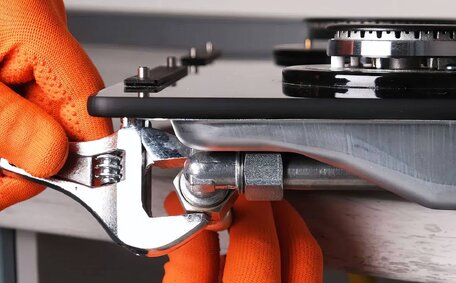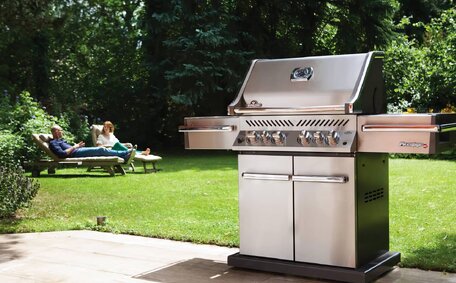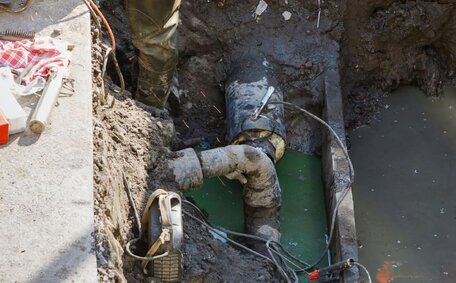
The role of gas fitting in kitchen renovations
When renovating your kitchen, it’s important to engage a licensed gas fitter to safely install, replace or alter any gas appliances and pipes. This ensures
Read MoreSeveral factors can cause your hot water to have a rotten egg smell:
If you’re wondering why your hot water smells, it’s likely due to hydrogen sulfide gas being released into it. This gas is produced either by bacteria inside the tank or from the natural corrosion of a magnesium anode rod. As hot water flows through infected pipes or a contaminated heater, the sulphur compounds transform into smelly gas.
Eliminating the bacteria and the resulting odour can be achieved through tank flushes or by replacing a corroded anode rod with a powered anode system. Complex problems with pipework or well water may require specialists to remove sulfur compounds.
Sulfate-reducing bacteria (SRB) release sulfide gas, contributing significantly to the rotten egg odour in hot water. SRB metabolise sulphur to produce sulfide gas, which contributes to the pronounced rotten egg odour in your water.
SRB thrive inside the heater, producing off-putting scents that are hard to ignore. They metabolise sulphur from the water supply, releasing hydrogen sulfide your water system then disperses as a byproduct. This gas then mingles with the water, suffusing your flow with a distinctive sulfide fragrance, particularly when heated.
Without treatment, SRB may lead to corrosion metal components inside the tank until you must get rid rotten compounds from your water to freshen the scent. They are also more common culprits for black residue along tank interiors and seepage into pipes, leading to a decline in the quality of water from your faucets.
By controlling SRB inside your home’s water heater, effective maintenance can mitigate the rotten egg smell your tank emits with flushing methods or shock chlorination. However, sulphur compounds can also enter through the water supply. In these instances, deploying a water softener, filtration system, or consistent maintenance of your anode rod can control SRB and their odorous byproducts.
The anode rod inside your hot water tank is essential for preventing corrosion and the associated rotten egg smell. Water heaters are fitted with magnesium or aluminium anode rods that degrade over time despite their sacrificial corrosion protection. However, as the magnesium rod degrades, it can exacerbate the emergence of rotten egg odours.
In areas with hard water, magnesium anode rods typically last between 3 to 5 years. As they corrode, the chemical reaction with water releases hydrogen sulphide gas resulting in that notorious rotten egg smell hot water emits that your guests would notice. Even though the rod is sacrificing itself, the rotten smell indicates it’s time for replacement.
Aluminium anode rods corrode at a slower rate, often lasting more than eight years. But they still produce a rotten egg smell before failing. Replacing the anode rod removes this source of odour while restoring corrosion protection inside the tank.
Should the rotten egg odour persist after replacing the anode rod, bacteria or sulfur in the water supply may be to blame. Our experts can diagnose the underlying problem and recommend solutions such as shock disinfection, filtration systems, or regular anode replacement to address the odour issue long-term.
To identify whether the sulfur smell or rotten egg smell originates from your water heater or plumbing system, Your drains are a critical part of the system, and hence, follow these troubleshooting steps:
Follow these steps to flush your hot water heater and remove built-up bacteria contributing to rotten egg smells:
Flushing your water heater can effectively remove bacteria responsible for rotten egg smells—often the primary source of the odour. For water heater repair, contact a plumber if the odour persists after flushing.
There are a few key signs indicating when you should replace the anode rod within your water heater:
As the anode rod corrodes over time, it can’t prevent scale buildup or bacteria growth inside the tank as effectively. Replacing the worn rod restores hot water system protection.
For inspections or affordable anode rod replacement services, contact the friendly team at Cecil Hills Plumbing on 1300 349 338 or email jobs@cecilhillsplumbingservices.com.au.
It’s always wise to seek professional help from a licenced plumber if your hot water smells and you’ve tried troubleshooting rotten egg smells yourself but can’t resolve the issue. Persistent rotten egg odours likely indicate an underlying problem with your hot water system or household plumbing.
Here are some signs it’s time to call in the experts at Cecil Hills Plumbing:
Our licensed plumbers can determine the reasons behind certain odours in your water, such as hydrogen sulfide production by sulfur bacteria leading to rotten egg smells. We’ll test your water, pinpoint the origin, and prescribe solutions like shock chlorination, tank replacements, or whole-house water filters to restore clean, odour-free hot water.
For a professional inspection, call Cecil Hills Plumbing on 1300 349 338 or email us to schedule an appointment.
To prevent long-term occurrences of smelly hot water, consider these tips:
Proactive preventative maintenance can prevent issues that cause your hot water to smell. Contact Cecil Hills Plumbing on 1300 349 338 for professional assistance safeguarding your household water quality all year round.
A persistent rotten egg smell in your hot water may signal a significant health risk requiring immediate attention. If shock chlorination and anode rod replacement haven’t resolved the issue, harmful bacteria like Salmonella or E. coli may have infiltrated your water supply.
Contact a licenced plumber right away for emergency water testing if you notice these red flags:
Our experts at Cecil Hills Plumbing use advanced diagnostics to check for dangerous pathogens including sulphur-reducing bacteria. We help identify contamination sources and can install disinfection systems and water treatment to restore safety.
Safe water is essential for your family’s health. For emergency testing or assistance with purification solutions, call us 24/7 on 1300 349 338.
There are several effective water treatment systems that can eliminate water smell like rotten eggs and improve water quality long-term:
Whole-house water filters remove impurities such as sulphur and bacteria from both hot and cold water before it enters your home’s plumbing. units fitted with a carbon filter are perfectly suited for capturing sulphides responsible for the egg smell your water sometimes has.
Ultraviolet (UV) systems eliminate rotten egg odours by exposing water to UV light, effectively killing sulphur-reducing bacteria. Preventing bacteria growth helps control rotten egg odours at the source.
Water softeners remove magnesium and calcium responsible for scale buildup and corroded pipes where bacteria proliferate. Softeners also filter out sulphides. Using potassium chloride salt helps limit bacteria regrowth.
Reverse osmosis thoroughly filters water by pushing it through a semipermeable membrane, removing dissolved solids and gases like hydrogen sulphide that cause unpleasant smells.
To manage all aspects of water quality including how hydrogen levels affect your water, Cecil Hills Plumbing’s licenced technicians offer thorough solutions with testing, inspections, and continuous support.
Contact our water treatment experts today on 1300 349 338 or email us to discuss the right solutions for cleaner, safer water throughout your home.
When renovating your kitchen, it’s important to engage a licensed gas fitter to safely install, replace or alter any gas appliances and pipes. This ensures
Read MoreGas line repairs require a licensed plumber to locate any leaks, fix damaged pipes and fittings, and properly seal everything to prevent future issues. Contact our emergency plumbers for safe and proper gas line repairs.
Read MoreDuring emergency plumbing situations, crucial safety precautions include turning off the main water supply to prevent flooding, wearing protective gear to avoid injuries, clearing standing water to minimize damage, and calling a licensed professional plumber for assistance.
Read MoreCecil Hills, 2171 NSW
We will call back as soon as possible.




